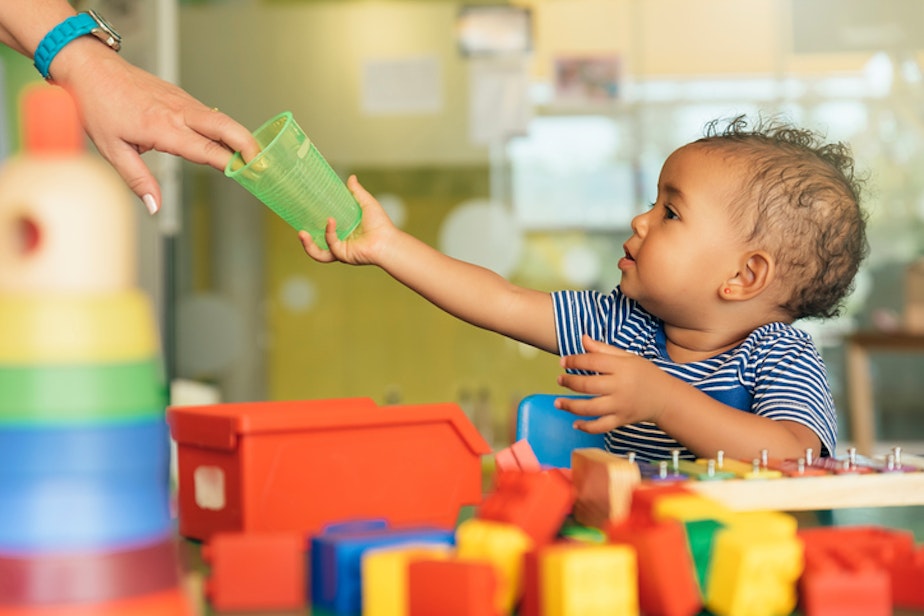Report: Covid-19 weakens the already fragile nature of our child care system

More than 500,000 children in Washington do not have access to licensed child care. A state task force has identified a need for dramatic investment to help children and families and boost an economic recovery.
Cheryl Smith is the Director of Community Engagement with the Washington State Department of Commerce. She tells us about a new Child Care Collaborative Task Force report.
This interview has been edited for clarity.
Working parents already knew how tough it was to get affordable child care in our state, but your group is saying it's now an even bigger crisis. What have you found?
We've just done possibly the most comprehensive study on the child care industry in the child care system in Washington in recent years, and it validated exactly what parents already think. What we've learned is that so many families do not have affordable child care or access to child care. Now we have data to show that.
We also learned that 40% of parents are using more than one child care arrangement just to make it work so that they can they can go to work every day.
How has Covid-19 impacted this issue?
Sponsored
Covid-19 has really affected the child care situation. It really highlighted what was already a stressed and fragile system. It's been like standing on shifting sands, and trying to keep your business open, and project how to help families access child care, and run your business at the same time.
I understand about a quarter of licensed providers have already closed their doors. How does this lack of child care affect our economy?
Child care is really a pillar of our economy, and we haven't necessarily recognized it as such. We're not going to have economic recovery if people cannot have their kids taken care of, to be able to get back in the workforce or return to their jobs.
Your report is saying around half of those licensed providers in our state who are left, are telling you that they may not make it through to the end of the pandemic. Who is going to be hurt most by this?
Well, the child care industry itself will be hurt, but I think that households with mid-level, moderately low income families are really going to be hurt, because it's going to be harder for them to be able to find care, and harder for them to be able to afford the care that they find.
Sponsored
Your report is calling for more investments in our child care system, even as state revenues are being pummeled by the economic impact of Covid-19. Where do you realistically expect more investments to come from at this point?
That's something that the Child Care Collaborative Task Force is actually wrestling with. We're recognizing that the public sector and the private sector are going to need to work together. We all are going to need to work together to recognize that we need to strengthen child care as an important pillar of our economy, or we're not going to recover.
If you think about lack of child care affecting employers' ability to recruit and retain talent, it's hard to get talent into an area if there is inadequate child care. And, that's just one of the problems that employers face related to recruiting and retaining talent, but it's an important one. So, we have to look at our entire system.
I'm not sure where the public investment side of this is going to be coming from in the future. But we will be looking at that and making policy recommendations both this December and next June about that.
Are you seeing any signs of hope?
Sponsored
Well, I think that the child care providers who I've been able to witness, and talk to, and listen to have been amazingly creative and resilient. I think that that they've probably been doing this for longer than many of us recognize. They've been making this work. They care so deeply about these kids and families. They are so personally committed. They impress me so much.
I'm just honored to be able to work with them and to work with the advocacy organizations. That's the thing that gives me the most hope. I guess I would also say people are recognizing how big of a problem this is now, and maybe we just haven't had to recognize it before now, and recognition is part of the answer.
Listen to the interview by clicking the play button above.





